Notes on the Notes – Christmas Eve 2015

Christmas Eve Scripture Readings:
Isaiah 9:2-7
– The people who walked in darkness have seen a great light
Luke 2:1-20 – The nativity story
5 p.m. Service
(Scroll down for the 7 & 11 p.m. services)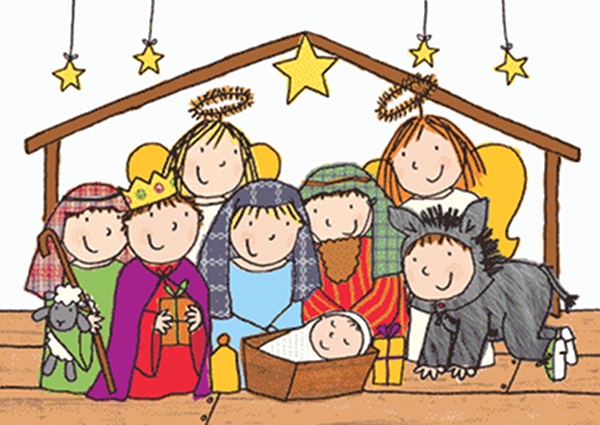
The music for this service will be led by The Praise Team and The Joyful Noise
“Come, Let Us Adore Him”
“Come, let us adore Him,
Emmanuel, God with us.
Come, come and behold Him,
Born this day in Bethlehem, the Savior of the world.
Heralded by the prophets of old; they had foretold this day would come.
A virgin conceives and bears a Son, the Light of the World,
The Chosen One.
Wonderful Counselor, mighty God,
The everlasting Father, Prince of Peace!
O come, let us adore Him;
Christ the Lord.”
This upbeat introduction to our worship service was written by Gary Hallquist and arranged by Mary McDonald (2015). Along with original material, the song also incorporates a little of “O Come, All Ye Faithful” and invites all to come and worship at this special time.
“Light of the World”
“The world waits for the miracle.
The heart longs for a little bit of hope.
Oh, come. Oh come, Emmanuel.
A child prays for peace on earth and she’s calling out from a sea of hurt.
Oh, come. Oh come, Emmanuel.
And can you hear the angels singing?
Glory to the light of the world.
Glory to the light of the world.
It is here.
The drought breaks with the tears of a mother.
A baby’s cry is the sound of love come down.
Come down, Emmanuel.
Here’s the song for the suffering.
Here’s Messiah, the Prince of Peace has come.
He has come, Emmanuel.
Glory to the light of the world.
Glory to the light of the world.
For all who wait.
For all who hunger.
For all who’ve prayed.
For all who wonder.
Behold your King.
Behold Messiah.
Emmanuel, Emmanuel.
Glory to the light of the world.
Glory to the light of the world.
The world waits for the the miracle.
The heart longs for a little bit of hope.
Oh, come.
Oh, come, Emmanuel.”
This song of longing and expectation was written by Lauren Daigle, Paul Duncan and Paul Mabury and arranged by Dan Galbraith.
“Joy to the World” (VU #59)
“Joy to the world! the Lord is come; let earth receive her King! Let every heart prepare him room, and heaven and nature sing.
He rules the earth with truth and grace, and makes the nations prove the glories of his righteousness and wonders of his love.”
This text is a paraphrase of Psalm 88:4-9. It was written by Isaac Watts and first published in his Psalms of David in 1719.
Enjoy this carol by:
George Fox University Music department: https://youtu.be/6oOwa0CWVVQ
Hillsong at: https://youtu.be/cnsk7iXFCtY
Boys’ choir “Libera” at: http://www.youtube.com/watch?v=5IH8A86FLs0
“Away in a Manger”
“Away in a manger, no crib for a bed,
The little Lord Jesus lay down his sweet head.
The stars in the bright sky look down where he lay,
The little Lord Jesus, asleep on the hay.
The cattle are lowing, the baby awakes,
But little Lord Jesus, no crying he makes.
I love you, Lord Jesus, look down from the sky
And stay by my side until morning is nigh.
Be near me, Lord Jesus, I ask you to stay
Close by me forever, and love me I pray.
Bless all the dear children in your tender care
And fit us for heaven to live with you there.“
This traditional children’s carol is an anonymous text which seems to have come from the German Lutheran community in Pennsylvania. The tune CRADLE SONG was published in an American collection of Christmas songs entitled Around the World with Christmas (1895).
Hear the song on harp at: https://www.youtube.com/watch?feature=player_embedded&v=rYc-XTYib4o
Hear the song on the piano at: https://www.youtube.com/watch?feature=player_embedded&v=vtW9TLjiPNs
“Hurry, Shepherds”
“Hurry, shepherds, hurry to the manger,
Hurry, shepherds, go to Bethlehem;
Join the chorus of the heav’nly angels,
Hurry, shepherds, go and sing with them;
Singing Gloria, singing Gloria, singing Gloria in excelsis,
Singing Gloria, singing Gloria, singing glory in excelsis Deo!
Hurry, shepherds, leave your sheep behind you,
Hurry, shepherds, do not be afraid.
See the star there, shining in the heavens,
It will lead you where the baby’s laid;
Singing Gloria, singing Gloria, singing Gloria in excelsis,
Singing Gloria, singing Gloria, singing glory in excelsis Deo!
Hurry to the manger,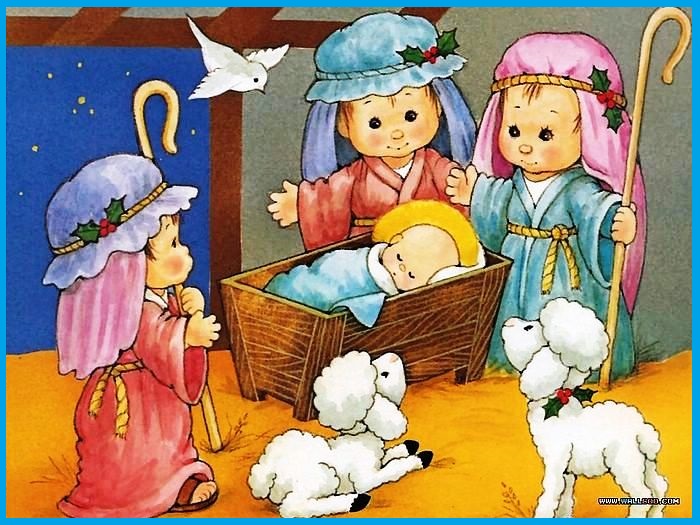
Hurry to the stall,
Run and see the baby,
Saviour of us all!
Singing Gloria, singing Gloria, singing Gloria in excelsis,
Singing Gloria, singing Gloria, singing glory in excelsis Deo!”
This anthem by Deborah Govenor (2005) is a lively encouragement to the shepherds to leave their sheep and hurry to see the baby Jesus.
“Adoration/Lord, Prepare Me”
“Holy Child of God, we adore You now;
Like the wisemen bowed we kneel before You now.
And our gifts we bring as an offering;
Lord, we’ve gathered here to worship You alone.
Lord, prepare me to be a sanctuary,
Pure and holy, tried and true.
With thanksgiving I’ll be a living
Sanctuary for you.”
This medley incorporates the song “Adoration” by Randy Vader and Jay Rouse with the song “Sanctuary,” which was written by John W. Thompson and Randy Scruggs in 1982. Both songs encourage us to give, not just our gifts, but ourselves as offerings to God.
“Hark! The Herald Angels Sing” (VU #48)
“Hark! the herald angels sing Glory to the newborn King;
Peace on earth and mercy mild, God and sinners reconciled:
Joyful all ye nations rise, Join the triumph of the skies,
With the angelic host proclaim, Christ is born in Bethlehem:
Hark! the herald angels sing Glory to the newborn King…”
The carol we now know as “Hark! the herald angels sing” did not start life as such, and required at least four people to bring it to its current form. Charles Wesley wrote the original words as a Christmas Day hymn and first published it in 1739, with ten four-line verses, rather than the longer eight-line verses with refrain which we have now.
The tune was composed by Felix Mendelssohn for his Festgesang, Op. 68. It was scored for male voices with brass accompaniment, for the Gutenberg Festival in 1840 to celebrate the 400th anniversary of the invention of the printing press. It was adapted into a hymn tune by William Hayman Cummings in 1856.
Hear Frank Sinatra sing at: https://www.youtube.com/watch?v=0GWFdFqLKZ4
From “A Charlie Brown Christmas:” https://youtu.be/wTu00FCLgPs?list=RDwTu00FCLgPs
“Go, Tell it on the Mountain”
“Go, tell it on the mountain, over the hills and everywhere.
Go, tell it on the mountain that Jesus Christ is born.
While shepherds kept their watching o’er silent flocks by night,
Behold, throughout the heavens there shone a holy light…
The shepherds feared and trembled when lo, above the earth
Rang out the angel chorus that hailed our Saviour’s birth!…
Down in a lonely manger the humble Christ was born,
And God sent our salvation that blessed Christmas morn…”
In 1907, John W. Works III, a professor at Fisk University and a professional musician, compiled and published Folk Songs of the American Negro, a songbook designed to preserve and promote African American Folk-Work. Included in this book was Works’ arrangement of the song Go Tell It on the Mountain (author unknown). This song was known to have been sung by African American slaves since as far back as at least 1865.
See Dolly Parton sing the carol in her classic Christmas special at: https://www.youtube.com/watch?feature=player_embedded&v=3nPFUh4j2OM
Sing along with Starfield at: https://www.youtube.com/watch?v=yGs0mJco9lk&feature=player_detailpage
“Light of the Stable”
“Hail, hail to the newborn King!
Let our voices sing Him our praises!
Hail, hail to the guiding light that brought us tonight to our Savior.
Halle! Hallelujah!
Come, now let it shine so bright to the knowing Light of the stable.
Kneel close to the Child so dear,
Cast aside your fear and be thankful.
Halle! Hallelujah!”
Our closing song is by Steve and Elizabeth Rhymer (1975). It has been arranged by David Angerman (2012).
7 p.m. Service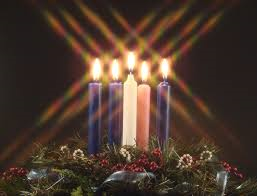
The music for this service will be led by The Worship Choir
“O Come All Ye Faithful” (VU #60)
“O come, all ye faithful, joyful and triumphant,
O come ye, O come ye to Bethlehem:
Come and behold him, born the King of angels’
O come, let us adore him,
O come, let us adore him,
O come, let us adore him,
Christ the Lord.
See how the shepherds summoned to his cradle,
Leaving their flocks, draw nigh with lowly fear;
We too will thither bend our joyful footsteps;
O come, let us adore him,
O come, let us adore him,
O come, let us adore him,
Christ the Lord.
Yea, Lord, we greet thee; born this happy morning;
Jesus, to thee be glory given;
Word of the Father, now in flesh appearing:
O come, let us adore him,
O come, let us adore him,
O come, let us adore him,
Christ the Lord.”
To learn more about this carol, go to: http://www.windsorparkunitedchurch.com/worship/sunday-service-bulletin/notes-on-the-notes-sunday-december-20-2015-advent-4/
“Lo How a Rose”
“Lo, how a rose e’er blooming from tender stem hath sprung!
Of Jesse’s lineage coming, as men of old have sung.
It came a flow’ret bright,
Amid the cold of winter, when half spent was the night.
Isaiah ’twas foretold it, the Rose I have in mind,
With Mary we behold it, the Virgin Mother kind.
To show God’s love aright she bore to us a Savior,
When half spent was the night.”
Originally a German carol, “Es ist ein’ Ros’ entsprungen,” the English version is by Dr. Theodor Baker (1894). The melody was harmonized by Michael Praetorius.
Hear the carol at: https://youtu.be/VnKaDF2rB-o
“As Lately we Watched”
“As lately we watched o’er our fields through the night,
A star there was seen of such glorious light!
All through the night, angels did sing,
In carols so sweet of the birth of a King.
A King of such beauty was ne’er before seen’
And Mary, His mother, so like to a queen.
Blest be the hour, welcome the morn,
For Christ, our dear Saviour on earth now is born.
Then shepherds, be joyful, salute your liege King;
Let hills and dales ring to the song that ye sing:
Blest be the hour, welcome the morn,
For Christ, our dear Saviour, on earth now is born.”
This carol about the visitation of the angels to the shepherds comes from 19th century Austria.
“Angels We Have Heard on High” (VU #38)
“Angels we have heard on high sweetly singing o’er the plains, and the mountains in reply, echoing their joyous strains. Gloria, in excelsis Deo!
Come to Bethlehem and see Christ whose birth the angels sing; come, adore on bended knee Christ, the Lord, the newborn King. Gloria, in excelsis Deo!”
Many years ago shepherds in the hills of southern France had a Christmas Eve custom of calling to one another, singing “Gloria in Excelsis Deo,” each from his own hillside. The traditional tune that the shepherds used may have been from a late Medieval Latin chorale. It became the magnificent chorus of “Angels We Have Heard on High.”
The original carol “Les anges dans nos campagnes” may date from the 18th century. As with many traditional carols, the author and composer of this anonymous French carol are unknown. It was first published in France in 1855, and gained great popularity in the first part of the 20th century. The beautiful carol tells the story of Christ’s birth, when the angel choir told the good news to nearby shepherds. The chorus, “Gloria in Excelsis Deo,” reflects the chorus of the angel choir that long-ago Christmas night.
The English translation came seven years later, in Henri Frederick’s Crown of Jesus Music. This 1862 translation differed from the form we use now. The version we use today was first printed in a 1916 American carol collection entitled Carols Old and Carols New.
See the acapella group Pentatonix perform the carol at: https://www.youtube.com/watch?v=H0fkkUYIku0
See the boys choir Liberia perform at: https://www.youtube.com/watch?v=X7MTjm6UYYA
See the fascinating Piano Guys at: https://www.youtube.com/watch?v=n543eKIdbUI
“Our Hope is in this child”
“She wrapped her tiny baby up in swaddling clothes,
And laid him so gently in the hay.
Her heart was filled with wonder at the promise of this child,
And the hope which was born that very day.
She quietly reflected on the angel’s words:
“Mary you are the chosen one
To bear a child named Jesus, the promised one, God’s Son,
Whose reign of love forever shall live on.”
Our hope is in this child of Bethlehem,
The God who came here as a babe
To create a world of goodness,
Empowered by God’s grace
To fill the hungry, lift up the humble, and heal the wounded.
Our hope is in this child.
Angels announced his birth from the heavens,
And filled the skies with song.
The prophets called this child Emmanuel,
God is with us.
God is with us, we’re not alone…
Our hope is in this child.”
This anthem by Canadian composer, Judith Snowdon (2000), is sung in memory of WPUC member Ione Toews.
“The Race that long in Darkness Pined” (VU #879)
“The race that long in darkness pined have see a glorious light;
The people dwell in day, who dwelt in death’s surrounding night.
To us a child of hope is born, to us a Son is given’
Him shall the people all obey, him all the hosts of heaven.
His name shall be the Prince of Peace, forevermore adored,
The Wonderful, the Counsellor, the great and mighty Lord.”
The text for this hymn comes from the prophecy in Isaiah 9:2-8. The words are by John Morrison, from the Scottish Paraphrases (1781) with music from the Scottish Psalter (1615). Tonight we will be singing the first, third and fourth verses of the hymn.
“Nativity carol”
“Silent, in the chill of midnight,
Starlight shines upon a lowly manger.
Wonder, wonder of the ages;
Heaven breaks forth on the earth.
For a child is born, the world rejoices!
Shepherds and angels proclaim his birth.
This is Jesus the Lord, our Saviour and brother,
Bearing God’s peace to the earth.
“Fear not,” said angelic voices;
“Tidings of a wondrous love we bring you.
Go now, find him in a manger;
Visit God’s home on the earth.”
For a child is born…
Jesus, Lord of all creation,
Sleep now close beside your mother, Mary.
Bring us light amid the darkness,
Promise of life without end.
For a child is born…”
This tender anthem by Francis Patrick O’Brien was written in 1992 in honour of the Immaculate Conception Parish Community in North Cambridge, Massachusetts.
“O Little Town of Bethlehem” (VU #64)
“O little town of Bethlehem, how still we see thee lie! Above thy deep and dreamless sleep the silent stars go by; yet in thy dark streets shineth the everlasting light; the hopes and fears of all the years are met in thee tonight.
For Christ is born of Mary; and gathered all above, while mortals sleep, the angels keep their watch of wondering love. O morning stars, together proclaim the holy birth, and praises sing to God the King, and peace to all on earth.o little town
How silently, how silently the wondrous gift is give! So God imparts to human hearts the blessed gift of heaven. No ear may hear his coming; but in this world of sin, where meek souls will receive him, still the dear Christ enters in.
O holy child of Bethlehem, descend to us, we pray; cast out our sin, and enter in; be born in us today. We hear the Christmas angels the great glad tidings tell; O come to us, abide with us, our Lord Emmanuel.”
The text for “O Little Town of Bethlehem” was written by Phillips Brooks (1835–1893), an Episcopal priest, Rector of the Church of the Holy Trinity, Philadelphia. He was inspired by visiting the Palestinian city of Bethlehem in 1865. Three years later, he wrote the poem for his church and his organist, Lewis Redner, added the music. Redner’s tune, simply titled ST. LOUIS, is the tune used most often for this carol in the United States and Canada, but it may also be sung to the tune FOREST GREEN instead.
See Sarah McLachlan sing this carol at: https://www.youtube.com/watch?v=jyPMDD8fGeA
11 p.m. Service
The music for this service will be led by Kelsey Shiaro and Michele Barr.
“There was a Child in Galilee” (MV #134)
“There was a child in Galilee who wandered wild along the sea,
A holy child, alone was she, and they called her Dreaming Mary.
And she dreamed, rejoicing in her saviour;
She dreamed of justice for the poor.
She dreamed that kings oppressed no more
When she dreamed, that Dreaming Mary.
One holy day an angel came with voice of wind and eyes of flame.
He promised blessed would be her name when he spoke to Dreaming Mary.
Then she spoke, rejoicing in her saviour.
She spoke of justice for the poor.
She spoke that kings oppressed no more
When she spoke, that Dreaming Mary.
And did she dream about a son?
And did he speak, the angel one?
We only know God’s will was done in the son of Dreaming Mary.
Then she prayed, rejoicing in her saviour.
She taught him justice for the poor.
She taught that kings oppressed no more
When she taught, that Dreaming Mary.
Then Jesus grew in Galilee, they wandered wild along the sea.
Now he calls to you and me to dream with Dreaming Mary.
And we dream, rejoicing in our saviour.
We dream of justice for the poor.
We dream that kings oppress no more
As we dream with Dreaming Mary.”
A song of the loves and dreams of Mary, rooted in the Magnificat, Luke 1:46-55. The words and music for this song are by Janet Cadeski (2005), arranged by Patricia Wright (2006).
“Silent Night”
“Silent night! Holy night! All is calm, all is bright round yon virgin mother and child. Holy infant so tender and mild, sleep in heavenly peace, sleep in heavenly peace…”
To learn about the history of this famous carol, visit http://www.stillenacht.at/en/origin_song.asp
To watch a vintage video about the carol, go to: http://www.youtube.com/watch?v=g9N4lTJb6gU
To hear the Carpenter’s version of the song, go to: http://www.youtube.com/watch?v=KJhA0CqMl0s
“Infant Holy, Infant Lowly” (VU #58)
“Infant holy, infant lowly, for his bed a cattle stall; oxen lowing, little knowing Christ the babe is Lord of all. Swift are winging angels singing, noels ringing, tidings bringing: Christ the babe is born for all…”
This carol is based on the traditional Polish carol, “W żłobie leży”. Edith M.G. Reed’s English paraphrase was first published in Music and Youth in December 1921.
Hear the carol in Polish at: http://www.youtube.com/watch?v=dk-O3MJ0vNY
Hear the choir at King’s College: http://www.youtube.com/watch?v=IaqoeCl_jR0
A contemporary version by High Street Hymns is at: http://www.youtube.com/watch?v=qb-yHpOc6b4
“Hark the Herald Angels Sing” (VU #48) – See 5 p.m. service
“Away in a Manger” (VU # 69)– See 5 p.m. service
Categories: Notes on the Notes

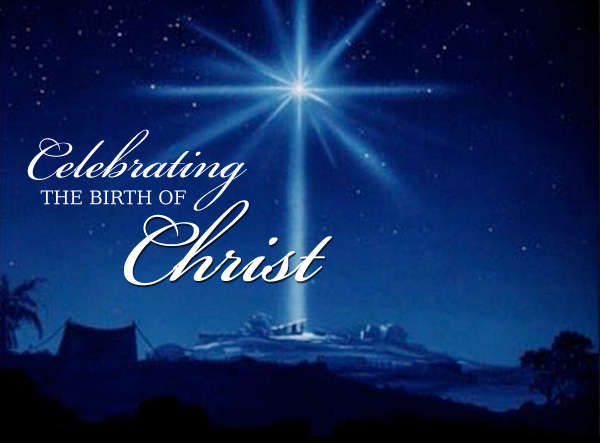
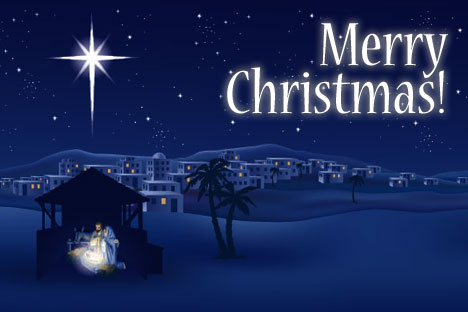

You must be logged in to post a comment.